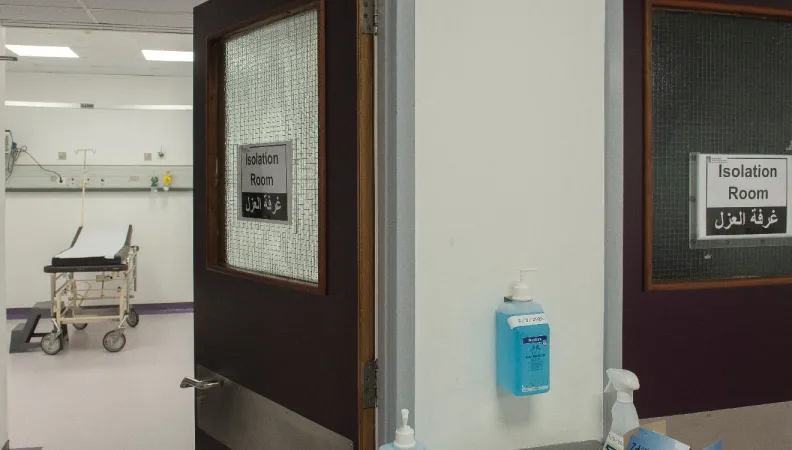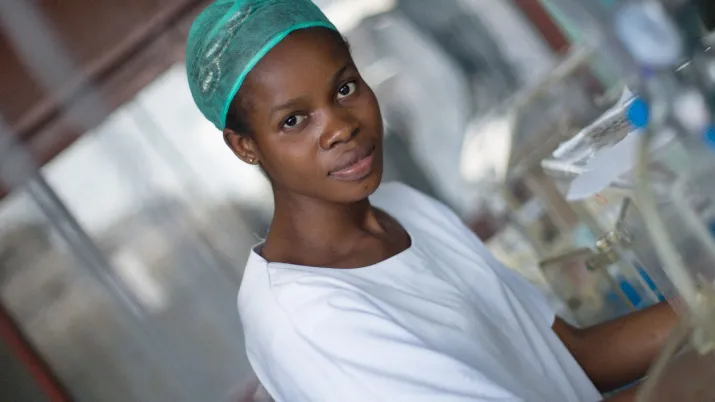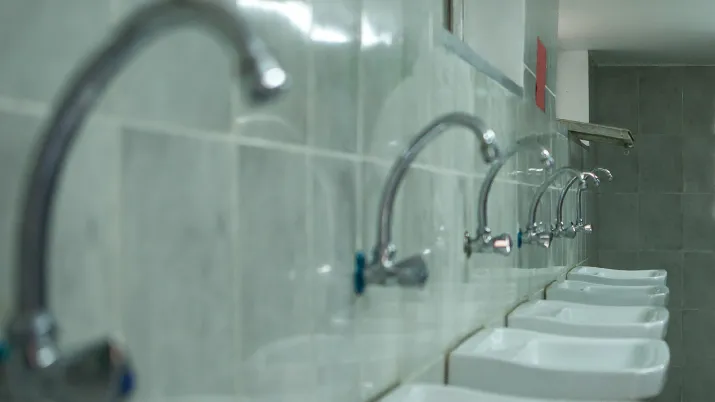Share the page
Coalition Combats Covid-19 in Lebanon
Published on

Launched in 2019, the capacity-building project for the Rafik Hariri public hospital is all the more important in 2020, as it has been designated the main center for the response to the coronavirus health crisis in Lebanon. And it builds on the work of an international coalition.
In 2016, the International Committee of the Red Cross established a multi-year partnership with the Rafik Hariri University Hospital (RHUH) to increase and improve access to healthcare and build the capacities of caregivers and employees. The project has received support from Agence Française de Développement beginning in 2019.
Increased capacity
Assistance to Rafik Hariri University Hospital is being financed by the Minka Middle East Initiative. AFD’s objective with this initiative is to help reduce and react to the shockwaves caused by the Syrian and Iraqi crises, and felt across the countries of the region. In Lebanon, the most serious medical cases are referred to public hospitals, including the RHUH in Beirut.
“We were sure that the partnership would contribute to the hospital’s capacity to receive vulnerable patients,” says Farah Asfahani, AFD’s regional health project officer for the Middle East. “But we didn’t know that this reinforcement would be tested by a pandemic a few months later!”
Covid-19 reached Lebanon on 21 February 2020. The RHUH was designated as the referral hospital to address the crisis, and quickly found itself on the front line. AFD’s financing has allowed ICRC’s teams to assist the hospital with a supply of essential equipment for the protection of medical staff, such as gloves and masks.
Previous AFD assistance had already helped provide building materials required to increase bed capacity and renovate the emergency room. Since the onset of the health crisis, the hospital has treated 176 positive admissions, with 63 people recovering. The hospital is also testing between 100 and 300 people a day.
Operational recommendations
ICRC has also recommended a separation of the hospital into two sections, with one area dedicated to those infected by the coronavirus, and another, regular hospital area, unrelated to Covid-19.
The dedicated emergency room has also been set up close to the other essential services, such as the operating room and dialysis room. “Every day this partnership demonstrates its rationale,” says Christophe Martin, ICRC Delegation Head in Lebanon. “It was essential, and now, it’s crucial! These difficult times give us the opportunity to work more closely together for patients, caregivers and the hospital.”
Without distinction as to social origin or nationality
“This partnership demonstrates that coordinating humanitarian and development approaches is worthwhile. ICRC’s intervention was initially designed for short-term humanitarian crises”, adds Olivier Ray, AFD’s Regional Director for the Middle East. “But this crisis is continuing and requires a long-term response. The combined forces of ICRC and AFD provide real long-term support to the hospital, in particular during this pandemic. And it improves access to healthcare for the most vulnerable people, without distinction as to social origin or nationality.”
Further reading
France Launches, via AFD, The “Covid-19 – Health in Common” Initiative to Support African Countries
Published on April 9, 2020



